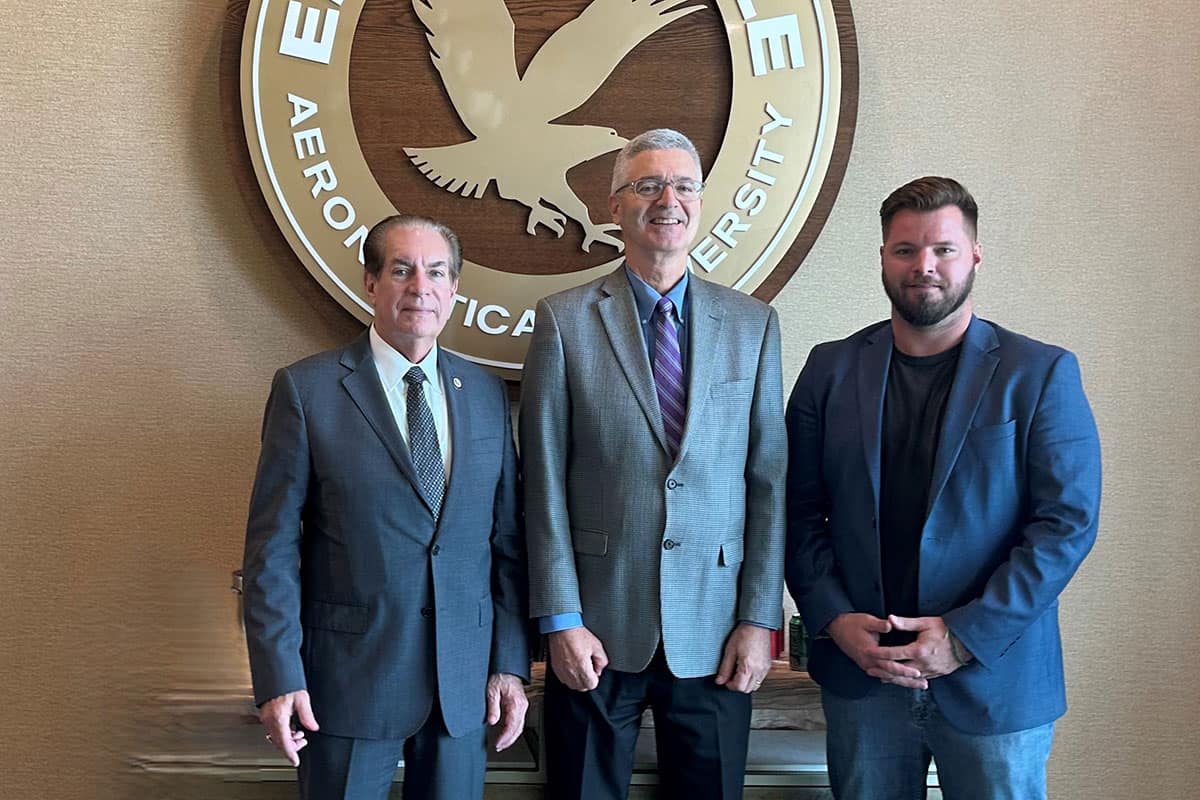Embry-Riddle Hosts Key Officials for In-Depth Discussion on Drone Technology Advancements

Embry-Riddle Aeronautical University recently welcomed Florida State Senator Tom Wright, chairman for the Committee on Military and Veterans Affairs, Space, and Domestic Security, and Nathan Ecelbarger, president of the U.S. National Drone (USNDA) Association, to its Daytona Beach Campus for a focused dialogue on the evolving landscape of drone technology and uncrewed aircraft systems (UAS).
As an established leader in the aviation and aerospace sector, Embry-Riddle has been a pioneer in the area of Uncrewed Aircraft Systems, providing students with comprehensive expertise in mission planning, remote pilot operations and data processing as well as extensive research opportunities.
During the campus visit, Mr. Ecelbarger and Senator Wright and his delegation toured several research facilities, including the MicaPlex, the Center for Aerospace Resilient Systems (CARS) and the Eagle Flight Research Center within Embry-Riddle’s Research Park. These facilities showcase the university’s ongoing initiatives in flight operations, simulator technology and research into uncrewed aircraft systems.
According to Senator Wright, “It’s imperative that the evolution of the UAS is done safely and responsibly. Embry-Riddle is leading the way in this field, and we were pleased to have the opportunity to engage in robust discussions about drone technology, its implementation, ongoing research and safe operation.”
The discussions with these key leaders underscored the strategic importance of collaborations between educational institutions, government and industry. Said Embry-Riddle President P. Barry Butler, “Embry-Riddle continues to foster innovation and advance the field through research partnerships and active engagement with leaders across sectors.”
According to Mr. Ecelbarger, “The USNDA is dedicated to the rapid advancement of drone and counter-drone capabilities that will ensure American drone dominance and is fully committed to accelerating partnerships between industry, academia, and federal, state and local governments to accelerate the employment of cutting-edge drone technology. Conversations with key stakeholders such as Senator Wright and leading academic institutions like Embry-Riddle help us to develop local and national advocacy efforts to support American-made manufacturing, advanced testing and permissive experimentation policies while recruiting and developing skilled drone operators and engineers for government and defense roles.”
During the discussion and tour, attendees learned about Embry-Riddle's cutting-edge developments in flight operations, simulation technologies and groundbreaking work with autonomous aerial vehicles. The university continues its dedication to pushing aviation and aerospace boundaries by collaborating with corporate partners and maintaining strong relationships with government agencies.
